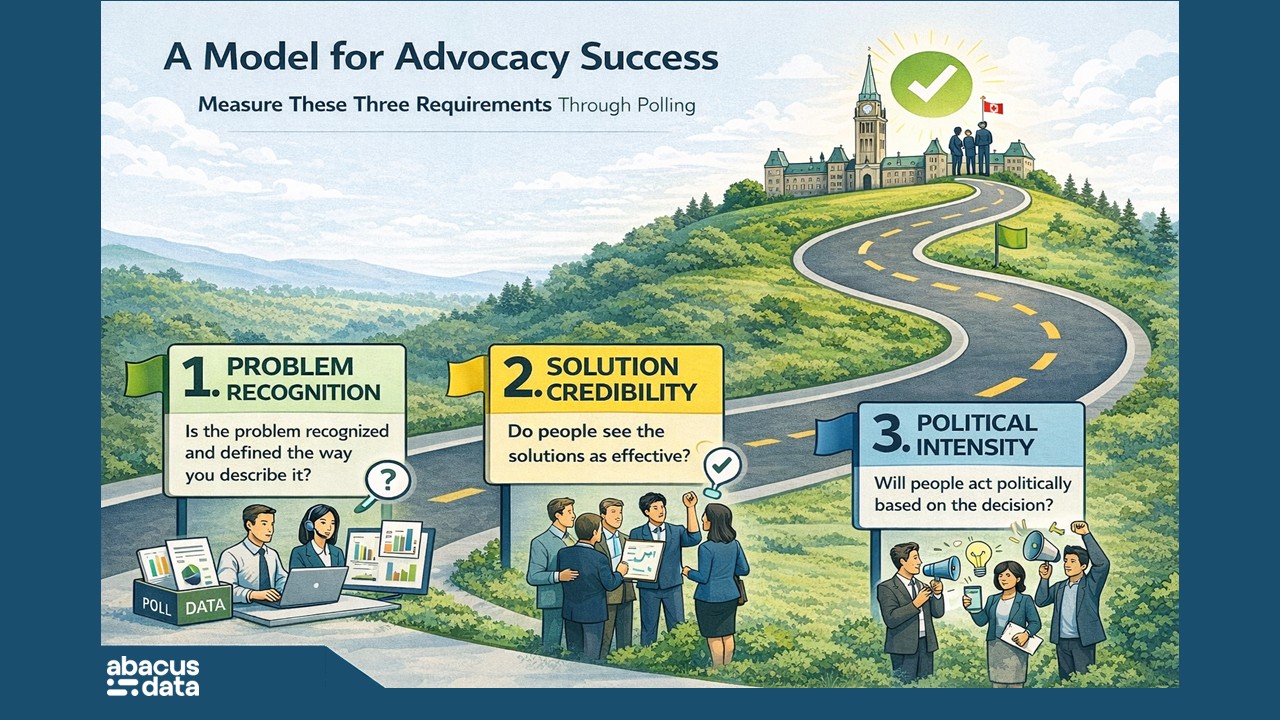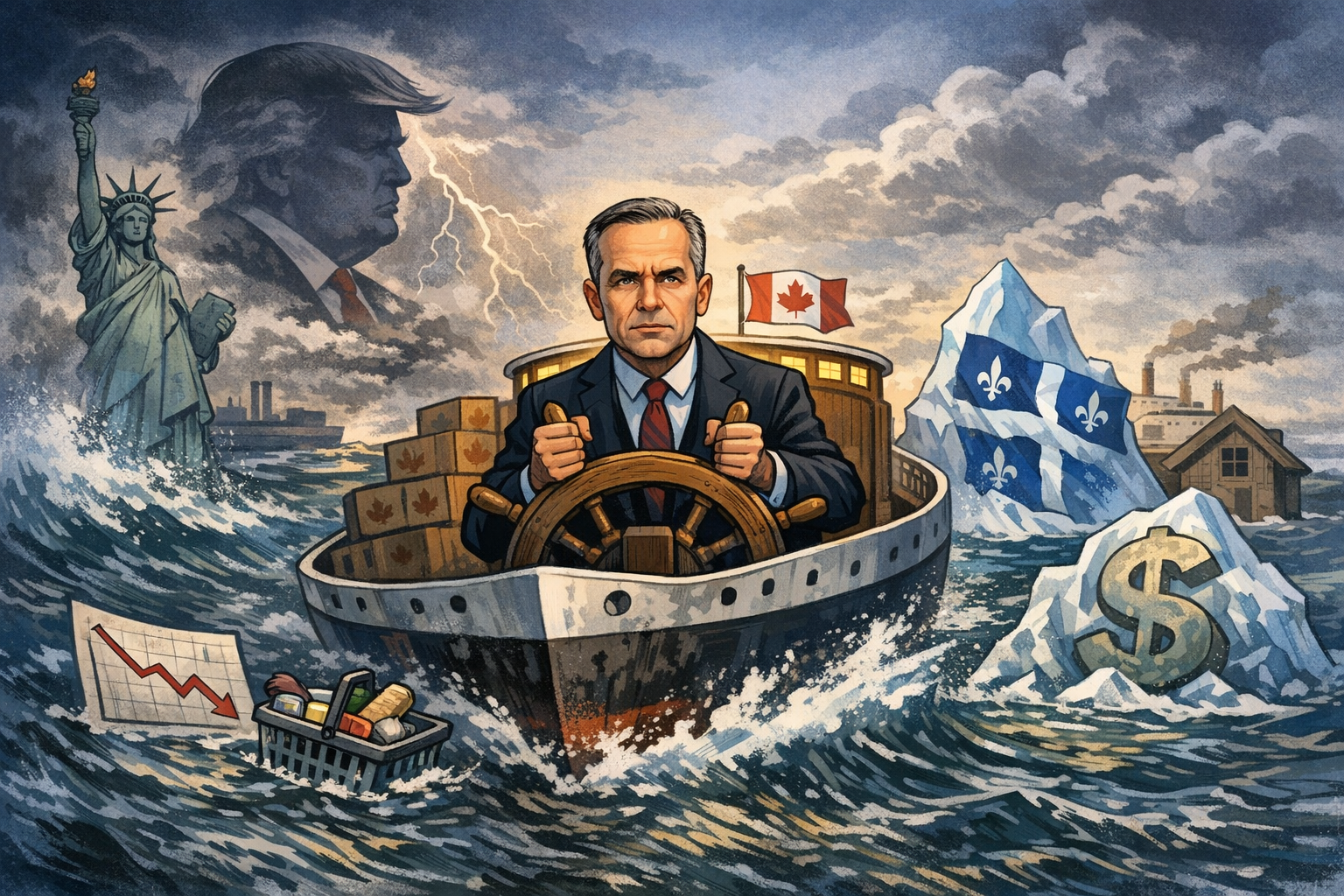Does Alberta want in or out and how does the rest of the country feel?
November 19, 2019
The post-election discussion in Canadian politics has centred a lot on the relationship with Alberta. With that in mind, we decided to take a look at where attitudes currently stand.
• Right now, 75% of Albertans think the province has been treated unfairly by the rest of the country, in terms of energy and equalization policies. However, in the rest of the country, most people feel Alberta has been treated fairly, including almost two-thirds or more of those living east of Manitoba.
• This perception is closely linked to partisanship. Most Liberal and NDP voters feel Alberta is treated fairly, while two out of three Conservative voters say Albertans have been treated unfairly.
• Frustration and feelings about fair treatment are widespread in Alberta, but at this point, most reject the idea of separating from Canada. While 75% of Albertans say the province has been treated fairly, just 18% say they would be happy if the province separated. Another 18% said they would be “ok” with that outcome. 24% would be unhappy and 39% very unhappy.
• In the rest of the country, substantial majorities would be unhappy if Alberta were to separate, except in Quebec. Among those in Quebec, 11% would be happy to see Alberta exit, and another 44% said they would be ok with that outcome, while 45% would be unhappy.
• While some who call for Alberta to exit the federation argues Albertans would be better off outside than inside Canada, Albertans generally do not agree. Only 23% of Albertans think their standard of living would improve; twice as many think it would suffer.
• In the rest of the country, roughly 40% think their standard of living would suffer if Alberta left, except in Quebec, where only 30% feel that way.



HOW WOULD YOU VOTE: ALBERTA SHOULD LEAVE OR REMAIN?
If Canadians were to vote on whether Alberta should stay or leave, 87% in the rest of the country would want Alberta to stay, from a high of 93% in Ontario to a low of 79% in Quebec.
In Alberta, 25% would vote to leave. Greater support for separation is found among the province’s UCP supporters (39%) and Alberta’s federal Conservative voters (37%). Alberta New Democrats show only 11% support for separation.


UPSHOT
According to Bruce Anderson: “The conversation about how Alberta has been treated is polarizing. Most in Alberta think they are treated badly, but the rest of the country is not convinced at this point. Right now, Alberta separatism has a range of 25% to 36% support, assuming that people who say they are ok with that outcome remained of that view. Alberta separatists are convinced the province would be better off – but other people in the province think their standard of living would decline.
The risks of greater polarization are clear. The skirmishing between BQ leader Blanchet and Alberta Premier Kenney belies a gulf in sentiment between Quebecers and Albertans over oil, pipelines and climate change.
Quebecers seem unlikely to support more pipelines or to soften concern about climate change based on Mr. Kenney telling them they depend on Alberta’s generosity, or even in the face of the risk of Alberta separatism.
Albertans are likely to be more angered at Mr. Blanchet’s shrugging off the fiscal and energy contributions Alberta has made, and the challenges that the province’s oil patch is facing today.
To bridge the divide, a thoughtful debate about the economic contribution of Alberta or the math of equalization will provide only part of a solution. Many (including many in Alberta) also will want to know that Alberta under Mr. Kenney’s leadership recognizes a global desire to shift to lower-carbon forms of energy and fight climate change, and has ideas to bring to that conversation.
Our research has shown for several years that Canadians – including Albertans – believe it essential to have a plan for economic success in a world where oil use begins to decline and where renewable energy sources become more economical and widespread.”
According to David Coletto: “National unity is once again front and centre in our political debate. While most Canadians don’t feel that Alberta is being treated unfairly, there is a sizeable minority outside of Alberta who does, including among Liberal and NDP supporters.
The one in four Albertans who would vote to separate from Canada is in line with research we conducted earlier this year and has not materially increased since the federal election.
Politically, the data highlights the challenge facing the federal Conservative Party and the United Conservatives in Alberta. With a sizeable portion of their supporters favouring separation, the risk of alienating other voters and splitting the movement so soon after unity should not be understated.”
METHODOLOGY
Our survey was conducted online with 3,000 Canadians aged 18 and over from November 12 to 17, 2019. A random sample of panellists was invited to complete the survey from a set of partner panels based on the Lucid exchange platform. These partners are double opt-in survey panels, blended to manage out potential skews in the data from a single source.
The margin of error for a comparable probability-based random sample of the same size is +/- 1.79%, 19 times out of 20. The data were weighted according to census data to ensure that the sample matched Canada’s population according to age, gender, educational attainment, and region. Totals may not add up to 100 due to rounding.
ABOUT ABACUS DATA
We are the only research and strategy firm that helps organizations respond to the disruptive risks and opportunities in a world where demographics and technology are changing more quickly than ever.
We are an innovative, fast-growing public opinion and marketing research consultancy. We use the latest technology, sound science, and deep experience to generate top-flight research-based advice to our clients. We offer global research capacity with a strong focus on customer service, attention to detail and exceptional value.
We were one of the most accurate pollsters conducting research during the 2019 Canadian Election.

Contact us with any questions.
Find out more about how we can help your organization by downloading our corporate profile and service offering.




